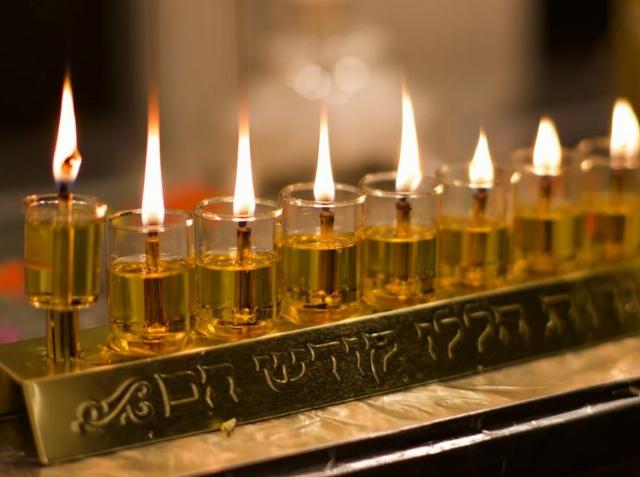How Chanukah repudiates terrorism
At the time of this writing, 15 are dead and over thirty injured in New Orleans at the beginning of the new year. Meanwhile, a Tesla Cybertruck exploded outside the Trump Hotel entrance in Las Vegas. I suspect that these incidents are connected, but time will tell.
Radicalizing former military members appears to be a tactic of the radical Islamists. (Remember Fort Hood.) As the IDF has damaged the elements of the terrorist organizations and the incoming Trump administration will likely be more active in the Middle East than the Biden government, more desperate radical behavior will play out. But what is the connection to the Jewish holiday of Chanukah? First, we should analyze some of the failures.
In New Orleans the bollards that would prevent a speeding car or truck from gaining access to the crowds on the sidewalks were being replaced, and inadequate measures were taken. Smart protection would have included large trucks blocking access, but they were not there. We have been warned for months that a terrorist attack was possible, but this attempt was not uncovered despite all the intelligence efforts threatening our privacy. But this person posted his intentions ahead of the attack. Who needs such poor snooping?
The cars in NOLA and Las Vegas were rented through Turo. What a coincidence!
The popular view of Chanukah is the celebration of the eight days of pure olive oil lights resulting from the miracle after the re-dedication of the holy Temple in 164 BCE. The miracle less mentioned is the defeat of the Seleucid Syrians by a significantly weaker Maccabean army. The two Books of Maccabees, not included in the Jewish Bible or Tanakh but present in the Catholic Bible, do not mention the oil burning for eight days. But the Second Book mentions the lost eight-day holiday of Sukkot. Further, there is mention of fire used to defeat soldiers of the Seleucids in one battle. So the books related horrific battles.
The Talmud does mention the lights to provide a miracle less violent. The first mention of the “Festival of Lights” comes from the Jewish Roman historian Josephus Flavius of the 1st century C.E. Rabbi Joseph Caro mentions that the first day of the holiday celebrates the victory and the next seven days celebrate the miracle of the lights since there was already enough oil for one day.
There is controversy about the preparation of oil. In most sources, it is argued that it took eight days to purify olive oil. But this overlooks another issue: the Maccabees had just come from battle. In traditional Torah Jewish practice, contact with death renders the person ritually unclean for seven days. Therefore, these people could not make purified oil until the eighth day. So this might further explain the eight-day holiday. Finally, the prayer during this holiday, “Al Hanissim,” does mentions not the oil, but the war.
So why would this story be confusing? During the period of the Talmud codification, the Romans ruled Judea. After the Jewish wars of 66–73, when the Temple was destroyed; the battles of 111–13; and the Bar Kokhba revolt of 130–33, the Romans exiled Jews from Jerusalem. They dealt with Jewish resistance harshly. As rabbinic Judaism arose, these leaders would have wanted a muted statement that would use a light miracle rather than a battle one. Chanukah is considered a minor holiday. But in later years, it represents a rejection of the diaspora (or exile). With the modern state of Israel, this holiday reminds Jews of the need for vigilance against enemies.
Herein lies the connection between Chanukah and terrorism. The radical Islamists represent the threat to the Israeli nation. For over one year, the IDF has fought Hamas, Hezb’allah, Houthis, and Iran. Chanukah reaffirms the fight for a homeland for Jews and the resistance to millennia of antisemitism.
Terrorism is the radical Islamic assault upon Christianity, Judaism, and perceived heretics. The newly found IEDs in New Orleans were placed near police cars and the cathedral located in the French quarter. New Year’s is a day of obligation, so many Catholics could be in the cathedral if they were detonated, killing and maiming many. This is a tactic of ISIS. For Americans, Chanukah can be seen as a holiday that brings light to the darkness of evil.

Image via Pexels.





